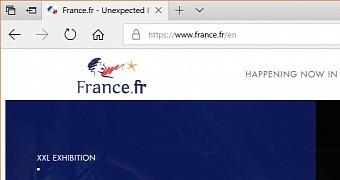In what could be one of the most unexpected legal disputes of the year, a French man is suing his country for seizing France.com, the domain he has owned since 1994.
Jean-Noël Frydman explains in court documents that the French government has never approached him with an offer to take over the domain, but instead decided to go the legal way without any prior talks.
“Defendants did not approach Plaintiff to purchase or license the domain, the trademark, or Plaintiff's underlying business and goodwill. Instead, in 2015, Defendants misused the French judicial system to seize the domain from Plaintiff without compensation, under the erroneous theory that Defendants were inherently entitled to take the domain because it included the word ‘France,’” the lawsuit reads.
Frydman says he purchased France.com in 1994 from Web.com and used the domain to set up a digital kiosk for Francophiles and Francophones in the United States. His business was using the France.com domain as well, and he worked together with French officials on a number of projects, as Ars reports.
Cybersquatting
But in 2015, the Ministry of Foreign Affairs started the legal action to take control of the domain, and a ruling in September 2017 from the Paris Court of Appeals indicated that the name was violating the French trademark. Therefore, the domain was transferred to the Ministry of Foreign Affairs in March 2018, and Frydman says he hasn’t received any notification or payment.
“I'm probably [one of Web.com's] oldest customers. I've been with them for 24 years... There's never been any cases against France.com, and they just did that without any notice. I've never been treated like that by any company anywhere in the world. If it happened to me, it can happen to anyone,” the former France.com domain told the source.
Frydman is suing France, government-backed tourism agency Atout France, the Ministry of Foreign Affairs and the minister, as well as VeriSign for what it’s being described as cybersquatting and reverse domain-name hijacking.

 14 DAY TRIAL //
14 DAY TRIAL //